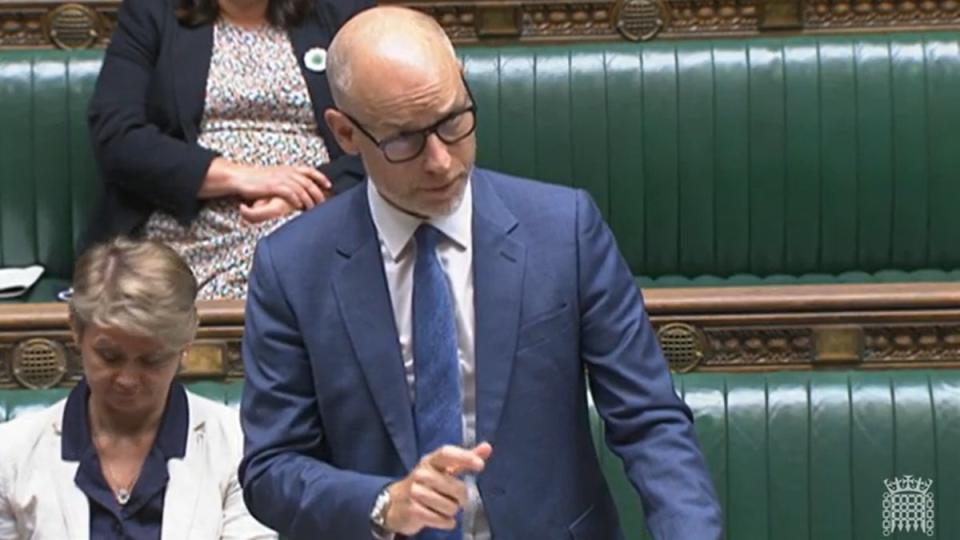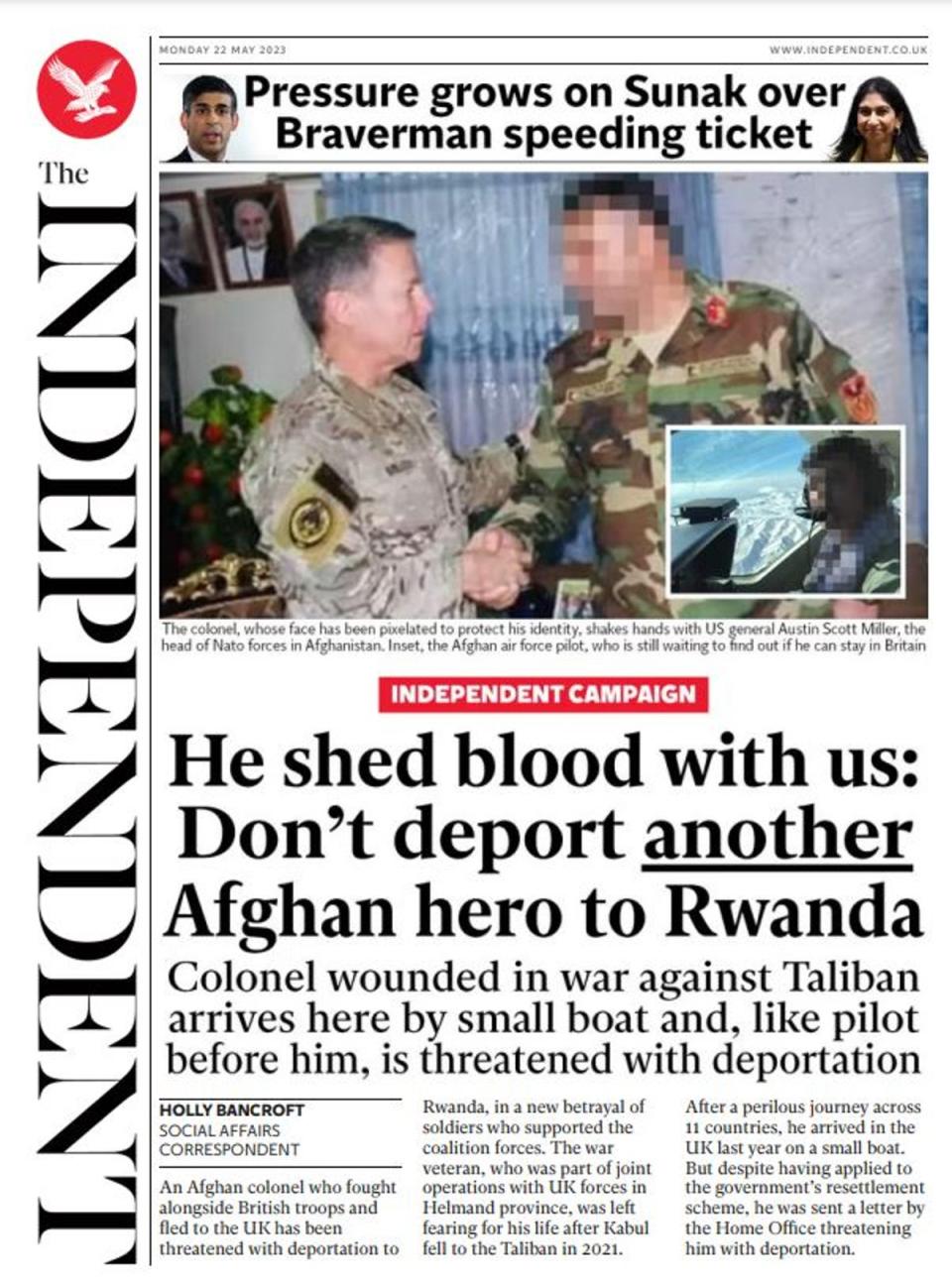Sunak rejects Lords’ plan to protect Afghan heroes from deportation to Rwanda
Rishi Sunak has rejected a plan to stop Afghan heroes who supported British troops from being deported to Rwanda.
MPs on Monday night overturned all 10 amendments to the Safety of Rwanda Bill by the House of Lords, including one that would have exempted anyone who supported British armed forces in an “exposed or meaningful manner” from being deported to the east African country.
Some 312 MPs voted against the Lords amendment, with 255 voting in favour, giving the government a majority of 57.
The other amendments overturned included an attempt by peers to ensure the bill complied with domestic and international law, and a requirement that parliament could not declare Rwanda a safe country until the treaty with its promised safeguards was fully implemented.
Ahead of the votes, the prime minister was told it was a “moral imperative” that Afghan heroes who supported British troops should not be deported to Rwanda.
Shadow immigration minister Stephen Kinnock said it “beggars belief” that the PM was considering putting Afghan heroes on deportation flights.

“We owe a debt of gratitude to those who have supported our defence, diplomacy and development abroad, not least in Afghanistan,” Mr Kinnock said.
The call to help those who supported UK forces came after a series of reports by The Independent that highlighted the plight of Afghan heroes facing deportation to Rwanda after feeling forced to take dangerous routes to the UK.
Earlier on Monday, MPs debated the 10 amendments peers attached to Mr Sunak’s flagship immigration policy, which was designed to allow ministers to deport those who arrive in the UK via irregular routes, such as on small boats, to Rwanda.
After an earlier bid to deport asylum seekers to Kigali was ruled unlawful by the Supreme Court, Mr Sunak sought to rule Rwanda a safe country in British law and the vote passed.
The bill will now go back to the House of Lords as the two houses try to find common ground on the way forward.

Peers will then be able to pass fresh amendments, but the government will again try to strip them out in a process known as ping pong.
Mr Kinnock said on Monday: “It beggars belief that the government would even consider sending this cohort of heroes who are fleeing the Taliban to Rwanda.
“Britain’s commitment towards these loyal-to-Britain Afghans is felt most strongly by our own armed forces.
“But this government has continually shirked its responsibilities towards Afghans, including by leaving thousands of those with the right to be in the UK stranded in Pakistan for more than a year.
“Little wonder that they have resorted to making these desperate journeys across the channel.”
During the debate, Conservative former minister Sir John Hayes questioned whether peers were “clueless or careless” about what is happening with immigration.
“Any attempts to wreck this bill is an open-door policy to let human traffickers traffic people illegally into our country, to upset our local communities and ultimately, unfortunately, more people will die if this bill doesn’t go through because of the loss of life in the Channel,” he told the Commons.
Prior to the votes, Labour said it planned to back all 10 Lords amendments in the Commons, claiming they made the bill “marginally less absurd”.

Home Office minister Michael Tomlinson earlier said the government “greatly values” those who supported Britain’s armed forces overseas. “That is why there are legal routes for them to come to the United Kingdom,” he added.
Mr Tomlinson said the illegal migration act passed by parliament last year lets the home secretary specify some people as not eligible for removal.
He added: “The government recognises the commitment and the responsibility that comes with combat veterans, whether our own or those who showed courage by serving alongside us and we will not let them down.”
He also insisted there was nothing in the Rwanda bill which conflicted with the UK government’s international obligations.
Mr Tomlinson told the Commons: “This bill is an essential element of our wider strategy to protect our borders and stop the boats to prevent the tragic loss of lives at sea caused by dangerous, illegal and unnecessary crossings across the Channel.”
On amendment one, which sought to ensure the bill complies with domestic and international law, Mr Tomlinson said: “I don’t accept that the provisions of the bill undermine the rule of law, and the government takes its responsibilities and its international obligations incredibly seriously.
“And there’s nothing in the bill that requires any act or omission which conflicts with our international obligations.”
He added: “This bill is based on both Rwanda’s and the United Kingdom’s compliance with international law in the form of a treaty, which itself recognises and reflects the international legal obligations of both the United Kingdom and also of Rwanda.”


